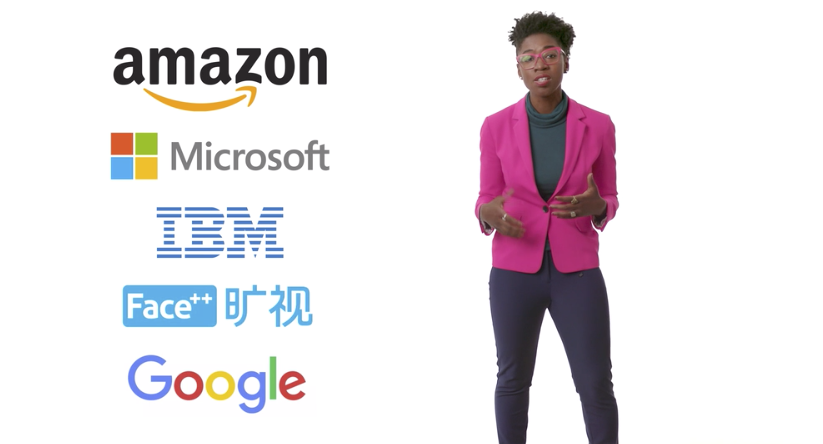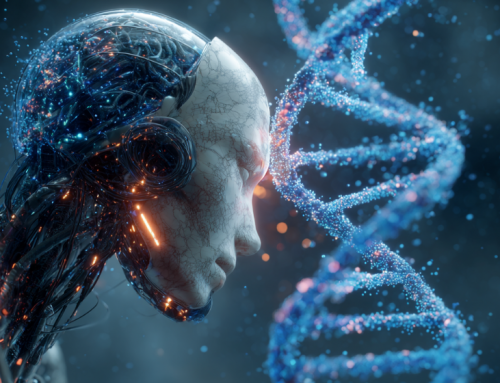
Joy Buolamwini recites a prose poem in reference to the discriminatory algorithms of large tech companies for a Time magazine commentary.
Companies Must Balance Algorithm Biases with Beneficial Job Use
In the past year, pitfalls of AI robotics and software replacing humans earned a large measure of deserved scorn in a vast array of articles. For instance, some software used for hiring has built-in gender discrimination and racial discrimination because of biased data and faulty facial recognition technology. In addition, AI-operated robots may replace human workers, even though they’re far from ideal for the job, such as in customer service and driving jobs, at least for now.
However, Bret Greenstein, Global VP, Cognizant, said in an InformationWeek.com article that AI has the potential to improvenworkplaces and replace unrewarding human jobs, bettering society as a whole.
The potential pitfalls must not be ignored, according to Joy Buolamwini, a computer scientist, founder of the Algorithmic Justice League, poet of code and MIT graduate degree holder. In a video, she recites Sojourner Truth’s “Ain’t I A Woman,” modified by her observations of faulty algorithms.
“My research uncovered large gender and racial bias in AI systems sold by tech giants like IBM, Microsoft, and Amazon,” Buolamwini wrote in TIME magazine. “Given the task of guessing the gender of a face, all companies performed substantially better on male faces than female faces. The companies I evaluated had error rates of no more than 1% for lighter-skinned men. For darker-skinned women, the errors soared to 35%. AI systems from leading companies have failed to correctly classify the faces of Oprah Winfrey, Michelle Obama, and Serena Williams. When technology denigrates even these iconic women, it is time to re-examine how these systems are built and who they truly serve.”

Bret Greenstein leads Cognizant’s Digital Business AI Practice, focusing on technology and business strategy, go-to-market and innovation.
According to Greenstein, despite the fact that a projected 30 million blue-collar workers may lose their jobs to AI, many AI jobs could have a positive impact by enabling people to work in more creative and productive ways in the long-term.
“When is it unethical to not replace⏤or augment⏤humans with AI?” Greenstein writes. “In the cost/benefit analysis of automating jobs and tasks, it should become integral for business leaders to identify the areas where AI should be deployed on ethical grounds. Based on my own experiences as an AI strategist, I can identify at least three broad areas where the ethics of employing AI are not only sound but imperative.”
Here are the areas he cites as beneficial:
- Physically dangerous jobs: ” The U.S. Bureau of Labor Statistics reported that in 2017, 5,147 civilian workers died in accidents while on the job. Though a slight decrease from 2016, that number represented a notable increase from the total in 2015, and fatalities as of that year had been on an upward trend since 2013.” Greenstein points out that as natural disasters increase in number because of climate change, robotics could save a lot of lives and prevent risking others.
- Health care: “A recent scientific review concluded that AI is already as effective at diagnostics as trained medical professionals, due to the ability of computers to use “deep learning” to emulate human intelligence and evaluate patients holistically.” AI could keep costs down and save time that workers could better use to help patients with the human touch.
- Data-driven decision-making: “Humans can be motivated by bias — including racism, sexism and homophobia — as well as by greed (AI may make mistakes, but is unlikely to embezzle money from a company, for instance). Ongoing efforts to ensure the quality of data and purge it of bias are essential to utilizing AI across business areas.” At the very least, AI can assist with thorny questions that require deep analysis for solutions.







Leave A Comment